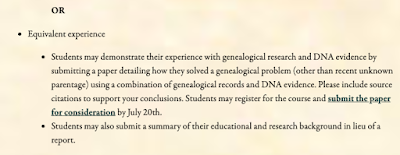Peer review is an essential element of every academic pursuit, including genealogy. The vetting of articles and other work products ensures that the author or applicant is conforming to standards dictated by that discipline. Within the field of genealogy, our scholarly journals present peer-reviewed written work adhering to best practices and genealogy standards.
Peer reviewers/judges for our credentialing bodies—the Board for Certification of Genealogists (BCG) and the International Commission for the Accreditation of Genealogists (ICAPGen)—determine whether our knowledge, our analysis, and final products demonstrate consistent high-quality work.
Study groups and writing groups present us with opportunities to act as peer reviewers ourselves. This course will examine the peer-review system from several angles, arming students with the tools and knowledge they need to achieve success.
Karen Mauer Jones, CG, FGBS, FUGA along with her instructor team, including:
- Jill N. Crandell, MA, AG
- Catherine B. W. Desmarais, CG
- Paul K. Graham, AG, CG, CGL
- Thomas W. Jones, PhD, CG, CGL, FASG, FNGS, FUGA
- Angela Packer McGhie, CG
- Karen Stanbary, MA, LCSW, CG
will provide expert guidance. Students should be familiar with the standards outlined in Genealogy Standards, 2nd edition, especially those pertaining to writing and documentation, and should also be familiar with the following concepts: indirect and direct evidence; original and derivative records; and authored narratives.
Students at this level should be familiar with and have the listed books. There are no required textbooks for this course, but students may find it useful to have numbers 1, 2, and 3 on hand during the week.
Students should bring a laptop or tablet with them or be prepared to use the Family History Library computers for the first and second homework assignments.
Each student should bring a writing sample to be used in the self-editing homework and the live-editing exercise.
Students will receive a PDF of an NGSQ article in the month before the course. Read the article three times, analyzing and taking notes regarding the evidence, the logic, the organization, and the writing.
For more information, go here.






